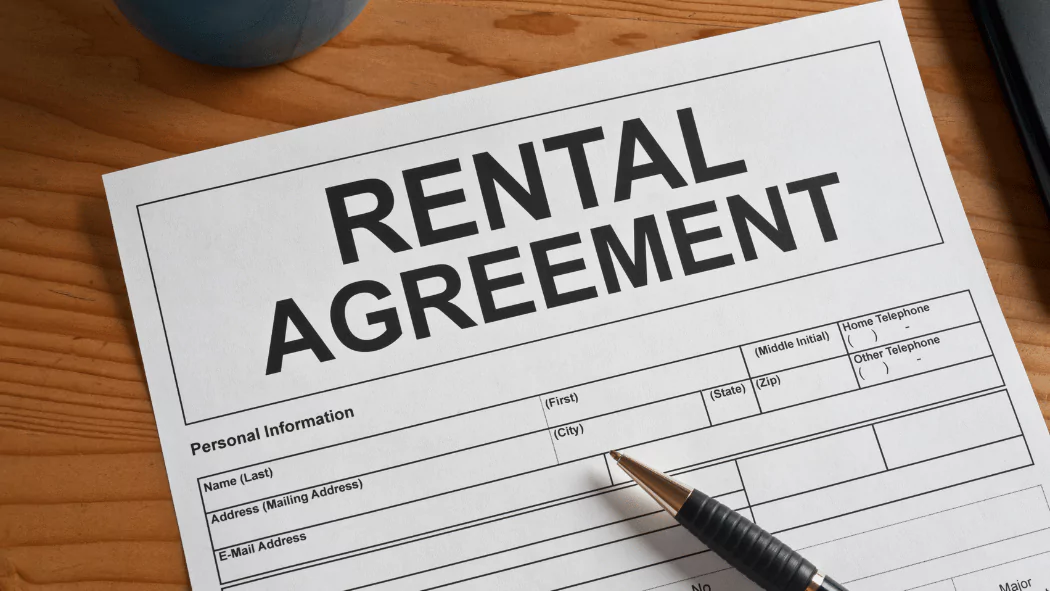Investing in real estate might be easier than you think. Traditional property ownership usually takes a lot of money and effort, but new investment apps let everyday people get involved without worrying about managing properties. here are the best ways to real estate investing.
Simple strategies like real estate crowdfunding, limited partnerships, and REITs give beginners an easy way to start. Instead of putting all your money into one property, these options spread out the risk across several investments.
Except for REITs and ETFs, real estate is usually a long-term investment that isn’t easy to sell quickly. Before putting money into a property or fund, make sure it matches your comfort level with risk and how long you plan to invest.
Apps like Fundrise can help you build a mix of private investments, including real estate and venture capital, to spread out your holdings.
Building a foundation: Knowledge and planning
Investing in real estate has become easier for beginners with new platforms, but there are still big risks. So, don’t skip the learning phase.
1. Get the Basics Down
Before you buy, take the time to understand different types of properties, market trends, and ways to finance your investment.
Think about the time, money, and effort needed to manage a property. Unlike stocks, real estate isn’t something you can sell quickly. Whether you buy property yourself or invest through a real estate platform, your money will likely be tied up for years. For example, multiple experts suggest investors should plan to keep their money in for at least five years.
However, some real estate options, like publicly traded REITs and ETFs, work more like stocks and can be sold faster.
2. Location Matters
If you’re looking to buy physical property, there is an old, wise saying: “The 3 most essential attributes in real estate are location, location, location.” Start by learning about the area. Talk to real estate agents and locals to understand who lives there, who’s moving in, and why. Look into past property prices to spot trends.
3. Set Your Real Estate Goals
What do you want to yield with real estate investing, and what risks are you comfortable with? Like any investment, it’s important to have a clear idea of what you hope to gain and what limits you have.
Common goals include earning a steady income, building wealth over time, and adding variety to your investments. Knowing what you want can help you pick the right approach. Ask yourself:
- Do you want a hands-on or hands-off approach?
- How much time and money can you put in?
- What level of risk feels right for you?
A simple plan can take you far in real estate. If your objective is to earn a passive income, you don’t need to start big. Keeping expenses low and beginning with smaller investments is often a smart way forward, say real estate investors.
4. Plan Your Real Estate Investments
Before putting money into real estate, think about your goals and how much risk you’re comfortable with. A financial plan enables you to understand your current money situation and plan for the future. By reviewing it, you can see where you stand financially and set a budget that won’t interfere with other important expenses.
Beginner-friendly real-estate investment strategies
Some investment options are better for experienced investors, while others work well for beginners. Here are some beginner-friendly ways to invest.
1. REITs (Real Estate Investment Trusts)
If you want to start investing in real estate without buying property, a real estate investment trust (REIT) is a great option. REITs own, manage, or finance properties, allowing investors to leverage the real estate market without the hassle of maintaining buildings.
Similar to mutual funds or ETFs, REITs focus on specific property types such as apartments, hotels, shopping centers, or hospitals. The most common type, equity REITs, pools money from multiple investors to purchase, develop, and manage real estate projects.
REITs mainly generate income through rent and leases, often paying out regular returns with high dividends. They also have a tax advantage: since they don’t pay corporate tax, investors can receive higher returns.
Types of REITs
Publicly Traded REITs
These REITs are primarily listed on stock exchanges, so investors can purchase and sell shares just like regular stocks. They are easy to trade and follow strict regulations, making them a popular choice for those looking for liquidity.
Private REITs
Private REITs are mainly not listed on stock exchanges and have more restrictions. Investors might have limited chances to sell their shares due to lock-up periods or withdrawal rules. However, they may provide access to unique real estate investments that can offer higher potential returns—along with higher risks.
2. Real Estate Limited Partnerships (RELP)
A real estate limited partnership (RELP) gives investors a way to put their money into different property projects. By pooling funds with others, investors can buy, rent out, develop, and sell properties that might be too expensive or difficult to handle alone.
Like REITs, RELPs own multiple properties, but they work differently and are usually aimed at investors with larger budgets. These partnerships operate more like private investment funds and are not available on public stock markets.
RELPs run for a set period and function like small businesses. They create a plan, acquire properties, oversee management, and sell when the time is right. Profits are shared along the way. Once all properties are sold, the partnership ends.
3. Online Real Estate Platforms
Real estate investment platforms make it easy and affordable for people to get involved in the property market. Crowdfunding sites, in particular, help connect real estate developers with potential investors looking to put their money to work. In return for their investment, people receive a share of the project’s profits, often through monthly or quarterly payouts if things go well.
However, not all crowdfunding options are open to everyone. Some, such as DLP Capital, are only available to investors with high incomes or significant experience. On the other hand, platforms like Fundrise and Groundfloor welcome beginners, allowing them to invest in property funds or REITs with lower barriers to entry.
Direct Real Estate Investment: Owning Property
One of the most standard ways to invest in real estate is by buying property and renting it out. Owning property can be done in different ways.

1. Buying a Home
If you’re looking to invest in real estate, your own home is a great place to start. Many people aim to become homeowners, and for good reason. Housing prices may rise and fall, but over time, they tend to increase in value.
Most buyers don’t pay the full cost upfront—they take out a mortgage. Paying it off over time builds ownership, making your home a valuable asset.
It’s often the first step before exploring other real estate investments. Plus, owning your home can strengthen your financial position since it’s a major asset under your name.
2. Rental Properties
Owning rental homes is a hands-on way to invest in real estate. For instance, you can buy a house, rent it out, and use the payments to cover mortgage, insurance, taxes, and upkeep. Ideally, your mortgage stays steady while rent increases, leaving you with more money over time.
You can look for rental properties through platforms like Roofstock. This service connects buyers with available homes suited for renting, helps with the purchase, and even provides a property manager for new owners.

However, being a landlord comes with risks. There’s always a chance of dealing with difficult tenants, unpaid rent, long vacancies, or property damage. Handling legal issues and maintenance can also be part of the job, making it important to be prepared for these challenges.

3. House Hacking
A simple way to invest in real estate is through house hacking. This means buying a building with multiple units, living in one, and renting out the rest. This setup helps cut down on living costs while also bringing in money to cover your mortgage, taxes, and insurance.
A smaller step in this direction is renting out part of your home on Airbnb. This can bring in extra cash each month without the commitment of a long-term tenant.
A smaller step in this direction is renting out part of your home on Airbnb. This can bring in extra cash each month without the commitment of a long-term tenant.
For those looking to take it further, condo conversions are another option. This involves purchasing a multi-unit building, renting it out, and later selling each unit separately as condos.
You get the building at a lower price, and over time, you can sell the units individually for a higher profit.
4. House Flipping
TV shows often make house flipping look simple, but in reality, it takes a lot of time and money. However, it also offers the chance to make big profits. If you’re getting into flipping, be ready for surprises—higher costs, mistakes, longer renovations, and challenges when selling.
Having a reliable team is a must. Skilled contractors, designers, legal experts, and financial advisors can help you avoid major setbacks. It’s also important to have extra funds for unexpected expenses. Even those with experience find that projects usually take longer and cost more than planned.

Having a reliable team is a must. Skilled contractors, designers, legal experts, and financial advisors can help you avoid major setbacks. It’s also important to have extra funds for unexpected expenses. Even those with experience find that projects usually take longer and cost more than planned.
Essential skills for real estate investors
Market Trends: Like the stock market, real estate is always changing with new trends and economic shifts. What’s popular today might not be in demand a decade from now. Learning how to analyze market trends will help you spot great investment opportunities.
Financial Skills: To find strong investments and track their success, it’s important to understand financial metrics like cap rate, cash flow, and ROI. Some real estate apps provide helpful tools for tracking this data.
In real estate investing, knowledge and flexibility turn market shifts into opportunities for lasting success.
Negotiation: If you’re investing through crowdfunding platforms or REITs, you may not need to negotiate right away. However, when buying or selling property, knowing how to negotiate can help you get a better deal.
Managing Property: If you plan to manage a property yourself, whether as a landlord or homeowner, it’s helpful to know about maintenance, tenant screening, and lease agreements. Knowing these vitals can save you time and money in the long run.
Effective Resources for Beginner Investors
Beginners can keenly think about the following resources to know more about real estate investing.
1. Real Estate Books
Books are some of the ideal ways to learn about new topics, even real estate. There are a lot of beginner-friendly books and guides on how to start investing in the real estate market. However, you should provide some valuable information on the author and its readers’ reactions to the text.
One book that you must consider is Brandon Turner’s The Book on Rental Property Investing, which Business Insider has ranked among the best investing books.
Other reading-worthy real estate books are as follows:
- Robert G. Hagstrom’s “The Warren Buffet Way”
- “The Intelligent Investor” By Benjamin Graham
- Lastly, “The Real Estate Investor’s Guide to Flipping Houses” By J. Scott
2. Local Real Estate Investment Groups
Meeting people who share your interest in real estate can be a great way to learn and grow. Depending on your location, finding a local group might be tricky. If you don’t see one nearby, think about starting a small gathering at your library or community center. You can also connect with others through social media or discussion boards focused on real estate investing.
3. Real Estate Agents and Brokers
One of the best ways to learn is by talking to professionals. Real estate brokers and agents have valuable insights that can help you understand the basics of investing. If you already work with a broker or financial advisor, set up a conversation to go over how real estate can fit into your financial plans. You can also reach out to agents in your area who might be open to sharing their knowledge and resources.
Bottom Line
Real estate investment offers many opportunities, whether you want to buy property, invest through REITs, or explore crowdfunding platforms. While new tools make starting easier, real estate still requires careful planning and patience. Before jumping in, take the time to learn about market trends, financial strategies, and the risks involved. Talking to experts, joining investment groups, and reading reliable resources can enable you to build a strong foundation.
No matter your budget or experience level, setting clear goals will guide you toward the right investment path. Whether you prefer hands-on property management or a more passive approach, real estate can be valuable to your financial plan. Start small, stay informed, and focus on long-term success. With the right strategy, real estate investing can be a beneficial way to grow wealth and create financial stability for the future.

